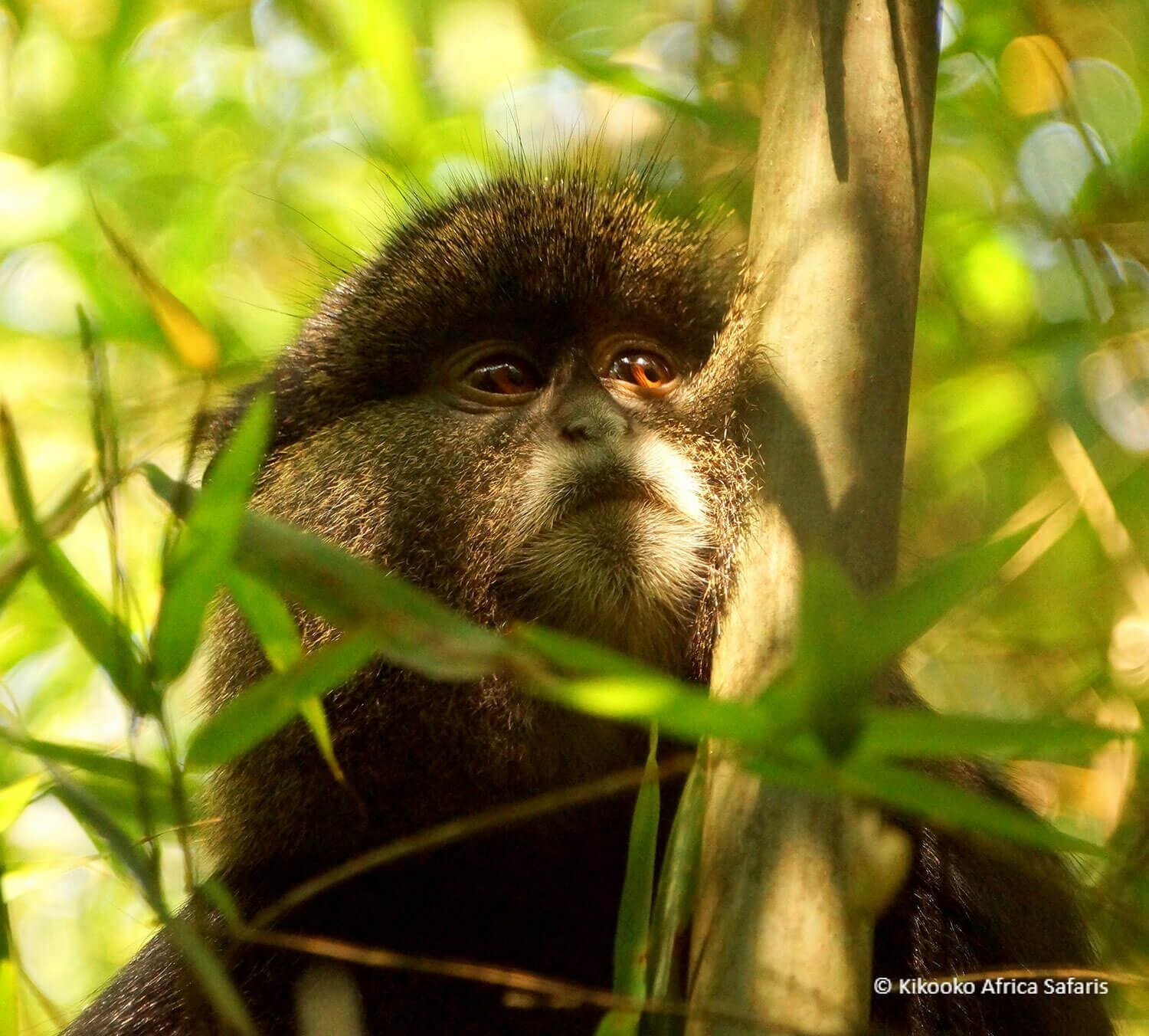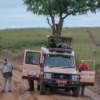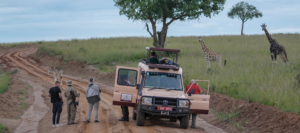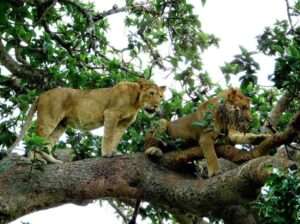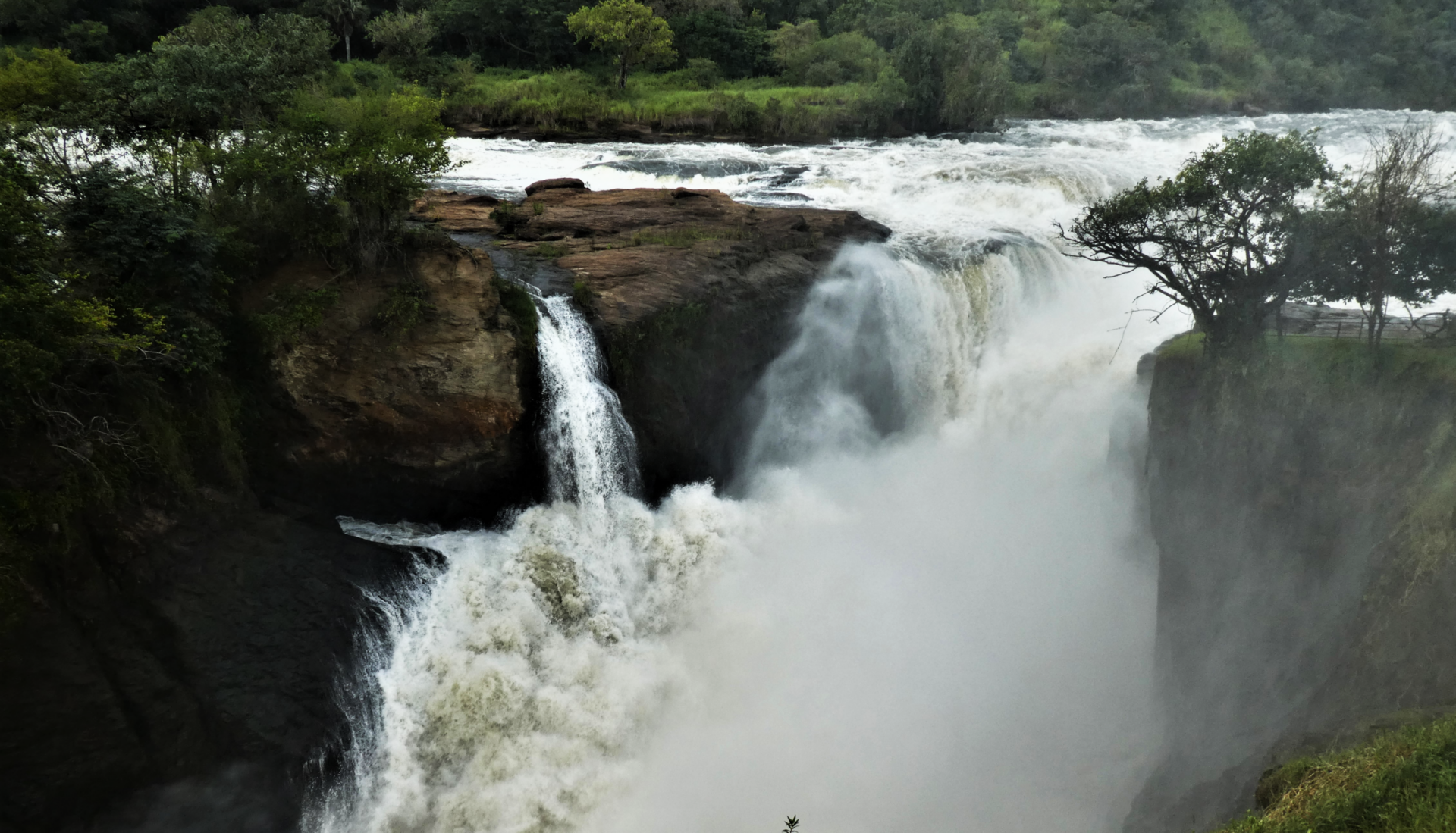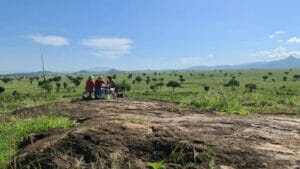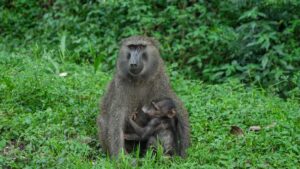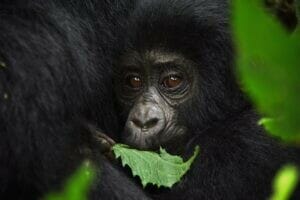Golden Monkeys, also known as the “shaggy orange apes” are one of the most fascinating and elusive primates found in Uganda.
These primates are found in the Virunga mountains region which is shared by Uganda, Rwanda and DRC.
The golden color of their fur is truly breathtaking, especially when the sun hits their fur, making them look like they are on fire.
Imagine being on a safari in Uganda and getting the chance to see these magnificent creatures in their natural habitat, swinging from tree to tree, playing and foraging for food. It’s an experience that will stay with you forever.
To get you excited, we’re sharing 17 of our favorite Golden Monkeys facts with you today, along with some interesting updates about Golden Monkey conversation in Uganda. Let’s get to it!
Facts About Golden Monkeys
Where Golden Monkeys Are Found
- Golden monkeys are found in the Virunga Mountains of Uganda, Rwanda, and the Democratic Republic of Congo. Overall, they like habitats with plenty of fruit and bamboo
- They inhabit montane forests between 2,500 and 4,500 meters above sea level.
Physical Characteristics of Golden Monkeys
- Golden monkeys have a distinctive golden-orange patch of fur on their back and limbs, giving them their name.
- Females have lighter colorations than their male counterparts.
- They have a black face and a long tail, and they typically weigh between 9-15kg.
- They have a lifespan of up to 20 years.
Behavior and Diet of Golden Monkeys
- Golden monkeys are diurnal and are known to be highly social animals. They are also very playful, so it’s not uncommon to see them chasing each other or playing games in the trees.
- In addition to being active during the day, they are arboreal, meaning they spend most of their time in trees. This makes them easy to spot on a safari.
- Golden Monkeys are also quite vocal, with many facial expressions and vocalizations.
- Golden Monkeys are herbivorous. Their diet consists of fruits, leaves, flowers, and insects. They also consume small animals such as birds, eggs, and snails.
- They live in troops of up to 100 individuals led by a dominant male.
- The dominant male can choose any of the females in the group to reproduce with.
- Gestation for Golden Monkey pregnancies lasts five months, and female Golden Monkeys give birth about once every two years.
- A Golden Monkey baby is considered to be independent at the age of 2 when it is sexually mature. At this point, it will leave its natal group, or birth family.
- Unlike mountain gorillas that sleep in different nests each night, Golden Monkeys often return to the same area to sleep, even after a long day of travel.
Threats to Golden Monkeys Survival
- Golden monkeys are considered endangered due to habitat loss, poaching for the bushmeat trade, and human encroachment on their natural habitat.
- Climate change, disease, and political instability in their range countries also pose a threat to their survival. Conservation efforts are being made to protect and preserve the remaining populations of golden monkeys in Uganda.
Efforts To Protect Golden Monkeys in Uganda
In addition to interesting facts about Golden Monkeys, it’s important to know the work that’s being done in Uganda and East Africa to protect them.
Government and NGO Efforts to Protect Golden Monkeys
In Uganda, the government and various NGOs are working to protect and conserve golden monkeys. The Uganda Wildlife Authority (UWA) is responsible for managing and protecting the country’s wildlife, and it has designated some areas as protected for golden monkey conservation.
NGOs such as the International Gorilla Conservation Programme (IGCP), the Dian Fossey Gorilla Fund, and the Jane Goodall Institute (JGI) are also working to protect and conserve golden monkeys through research, monitoring, and community engagement.
Community-based Conservation Efforts
Local communities play a crucial role in the conservation of golden monkeys in Uganda. Community-based conservation programs involve educating and engaging local communities in conservation efforts, such as through ecotourism and alternative livelihoods.
These programs aim to improve the relationship between local communities and golden monkeys, and to reduce human-wildlife conflict.
Ecotourism as a Conservation Tool in Uganda
Ecotourism is increasingly being used as a conservation tool for golden monkeys in Uganda. Responsible ecotourism can provide an alternative source of income for local communities, and it can also raise awareness about the importance of conservation.
Visitors can witness the golden monkeys in their natural habitat and contribute to conservation efforts through ecotourism fees, which are often used for conservation projects.
Challenges and Future Prospects of Golden Monkeys
Despite the conservation efforts being made, golden monkeys in Uganda still face many challenges. Habitat loss, poaching, and human-wildlife conflict remain major threats to their survival. Climate change is also expected to have a significant impact on their survival in the future.
However, with continued conservation efforts and the engagement of local communities, there is hope for the future of golden monkey populations in Uganda.
How Seeing Golden Monkeys in Uganda Can Help To Conserve Them
A safari to see golden monkeys in Uganda is not only an unforgettable experience, but it also plays a crucial role in their conservation.
The fees paid by visitors like you will help to support conservation efforts for these endangered primates. By visiting golden monkeys on safari, you are contributing to their survival and helping to protect their natural habitat. Additionally, ecotourism can provide an alternative source of income for local communities and raise awareness about the importance of conservation.
If you’re considering a safari to see golden monkeys in Uganda, Kikooko Africa Safaris is a great option to help plan your itinerary. We’ve been guiding international visitors on tailor-made safari tours in East Africa since 2013, and would be delighted to offer you a customized safari package, including trips to see golden monkeys. Each of our trips is designed to benefit local communities and to aid with conservation efforts.

